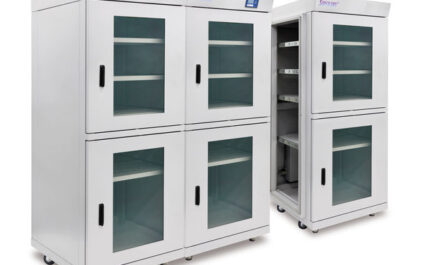Kidney cancer, also known as renal cancer, involves the uncontrolled growth of cells in the kidneys. It is among the ten most common cancers and includes renal cell carcinoma, which accounts for approximately 90% of kidney cancers. Renal cell carcinoma is often asymptomatic in early stages but may present with blood in urine, flank pain, or a mass. Treatment depends on cancer stage and type but typically involves surgery, immunotherapy, targeted therapy, and chemotherapy. Immunotherapy and targeted therapies such as Sunitinib (Sutent) have revolutionized kidney cancer treatment in recent years.
The global kidney cancer drugs market is estimated to be valued at US$ 12.5 billion in 2023 and is expected to exhibit a CAGR of 9.7% over the forecast period 2024 to 2030, as highlighted in a new report published by Coherent Market Insights.
Market Dynamics
Increase in Kidney Cancer Incidences
The increasing incidence of kidney cancer has been a key driver fueling the growth of the global kidney cancer drugs market. According to the American Cancer Society, kidney cancer incidence rates have been rising over the past few decades worldwide. In the US alone, around 79,000 new cases of kidney cancer were reported in 2023. This rise in new cases directly increases the demand for targeted therapies and immunotherapies for kidney cancer treatment.
Preference for Targeted Therapies and Immunotherapies
The preference for novel targeted therapies and immunotherapies over traditional chemotherapy has also contributed to growth of the kidney cancer drugs market. Drugs such as Sunitinib and Pazopanib that selectively target renal cell carcinoma tumor angiogenesis pathways have superior efficacy and safety profiles compared to chemotherapy. Additionally, immune checkpoint inhibitors (ICIs) targeting PD-1 and PD-L1 have gained significant traction in later-line kidney cancer treatment and are fast replacing chemotherapy.
Segment Analysis
The global kidney cancer drugs market is primarily segmented into the drug class, pathology and region. Based on the drug class, the market is segmented into targeted therapies and immunotherapy. Targeted therapies constitute the largest share in kidney cancer drugs market. Targeted therapies such as tyrosine kinase inhibitors are effective in treating renal cell carcinoma and gaining popularity.
PEST Analysis
Political: Government policies supporting the extensive research and development activities in oncology drugs are positively impacting the kidney cancer drugs market growth. Many countries have implemented national cancer control programs to improve the accessibility of cancer diagnosis and treatment.
Economic: Rising healthcare expenditure and increasing disposable incomes in developing countries provide lucrative opportunities for kidney cancer drug manufacturers. However, high treatment costs associated with targeted therapies may restrict market growth to some extent.
Social: Growing public awareness about early cancer diagnosis and improved treatment options is driving individuals to seek improved medical care. Support groups help cancer patients to cope up with the psychological impacts of the disease.
Technological: Advancements in drug development technologies are resulting in more effective and targeted treatment options. Combination therapies and personalized medicine approaches are being explored to enhance the treatment outcomes.
Key Takeaways
The global Kidney Cancer Drugs Market Share size is projected to reach USD XX billion by 2030, growing at a CAGR of around 9.7% during the forecast period.
Regional analysis indicates that North America will continue dominating the market, supported by advanced healthcare infrastructure and high adoption of innovative cancer therapies in the region.
Key players operating in the kidney cancer drugs market are Pfizer, Exelixis, Novartis, Merck & Co., and Bristol-Myers Squibb. The therapies offered by these companies contributes significantly towards meeting the rising demand for effective treatment. Some of the commonly prescribed drugs are Inlyta (axitinib), Votrient (pazopanib), Sutent (sunitinib), and Nexavar (sorafenib).
*Note:
1. Source: Coherent Market Insights, Public sources, Desk research
2. We have leveraged AI tools to mine information and compile it




